Live your fantasy of being a game dev in this sim where you build an MMO, manage your team and investors, and even play your own game
Think battling monsters is tough? Try battling shareholders in Let's Build a Dungeon.
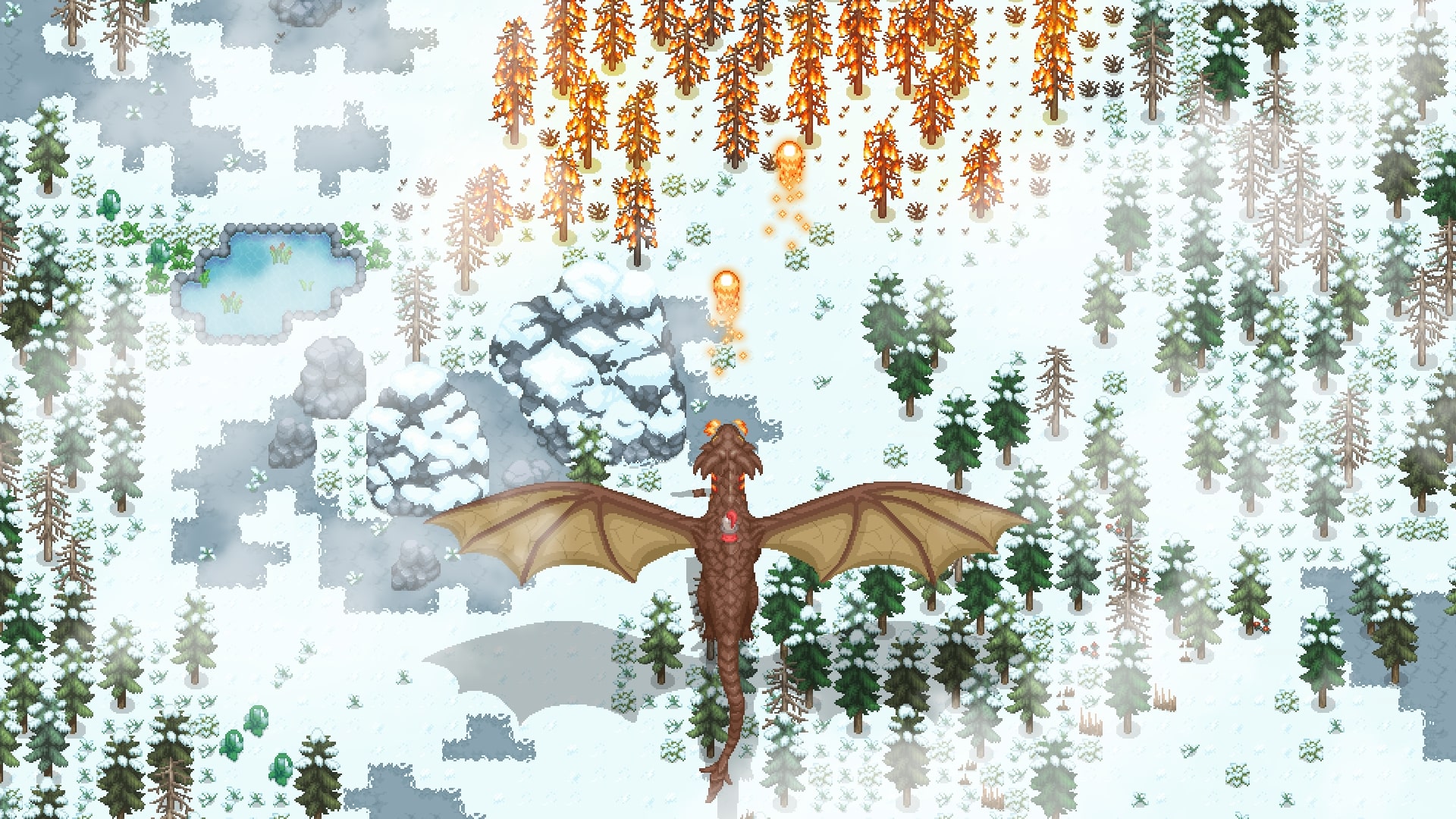
Ever fantasize about making your own game? Probably. Ever fantasize about making your own game while running a development studio, managing your employees, balancing your budget, crunching to meet deadlines, getting angry texts from your studio's investors, and dealing with data breaches? Maybe not.
Let's Build a Dungeon is a new management sim just announced by Springloaded, maker of 2021's Let's Build a Zoo. In fact, in a lot of ways, Let's Build a Dungeon is based on the making of Let's Build a Zoo and Springloaded's earlier games. Check out the trailer below to see how you can design, build, and play your own MMORPG in Let's Build a Dungeon… and how that's really just the tip of the game dev iceberg.
"Recruit staff, rent an office, manage project deadlines, negotiate with shareholders, pitch to publishers for investment and undertake many more crucial tasks," Springloaded announced today. "Take the company from a scrappy indie studio to a development powerhouse in a humorous but true-to-life take on the current games industry."
The type of game you create in Let's Build a Dungeon is up to you, and can be anything from "a monster-catching RPG" to "a cozy farming simulator." There's even fishing, so yes, I am absolutely going to create a fishing MMO when this sim comes out. The really cool thing is you can do more than just build the game and watch simulated players enjoy it: you can dive in and play it yourself.
I got to try a brief demo of Let's Build a Dungeon this week and it gave me a pretty tantalizing taste of running my own development studio. I began with an empty game world and used random generation to create a chunky continent for my MMO. Then I placed a few buildings of the sort you might find in a fantasy RPG: a bakery, a cartography office, a farm, plus some decorations like lamp posts and fences. But there's nothing for heroes to do without quests, so I added my first one: a merchant's cellar has been infested with giant rats and they need your help. Yep, that's early-game quest-giving 101.
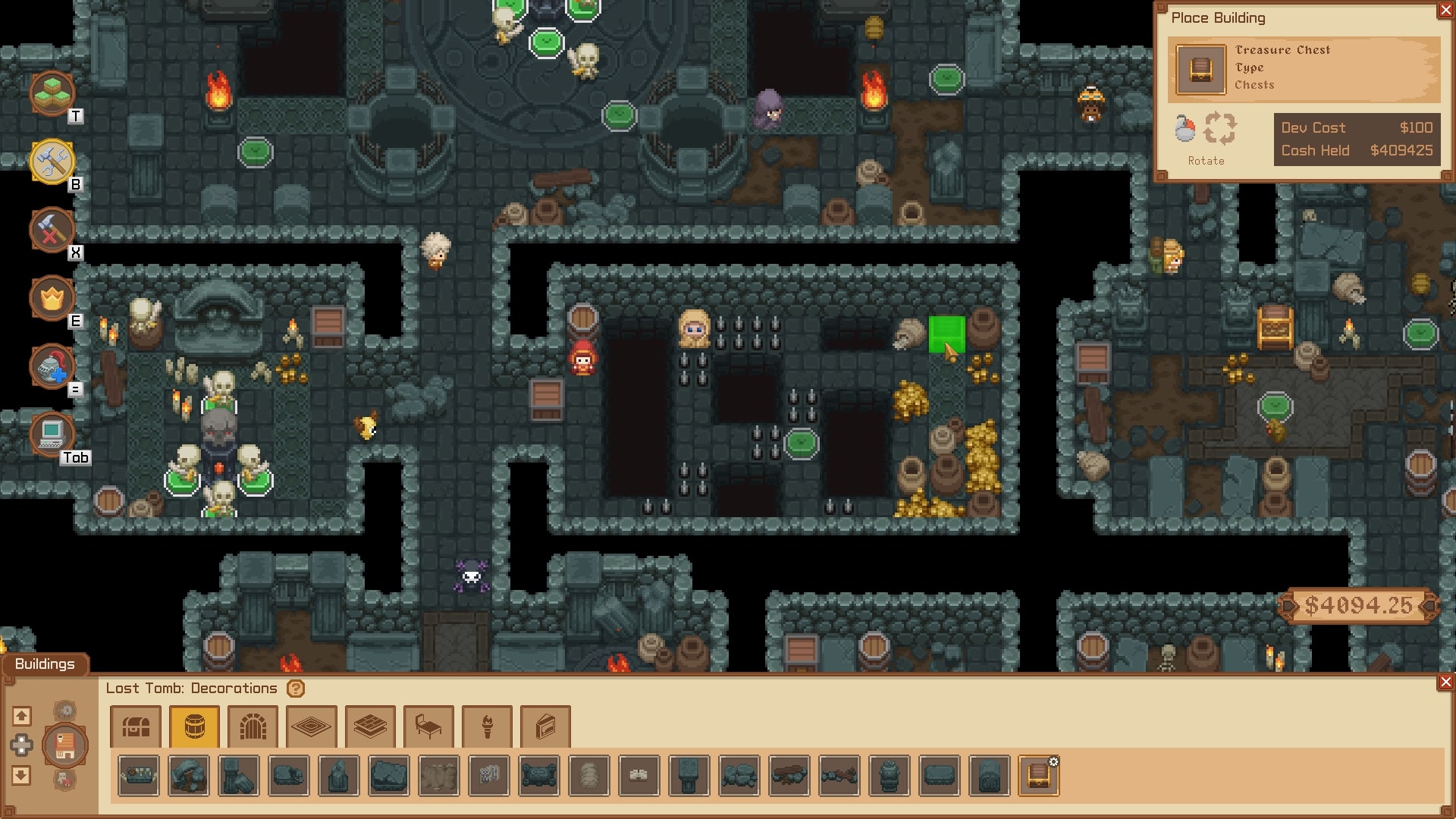
There were already beta-testers roaming the world even as I was creating it, so I carved out my first dungeon's rooms and passageways, adding monster spawners to generate rats for the heroes to fight, placing treasure chests to reward them with gold, and adding spots for collectibles to appear. My little testers rampaged through the dungeon hurling fireballs at swarms of rodents while I continued building, eventually adding a huge gate that led to my MMO's first boss fight with a big blobby eyeball monster.
Then, abruptly, I got a text message from my virtual boss. Oh, right! This isn't just a game design simulator, it's a game dev simulator. I left the dungeon behind and found myself looking at my virtual desktop with folders labeled "Org Chart" and "Dev Tools" and icons for a web browser, a calendar, and other utilities. As much fun as it is to play around with building towns and dungeons and placing monsters and treasure chests, there's a whole lot more to deal with in Let's Build a Dungeon.
The biggest gaming news, reviews and hardware deals
Keep up to date with the most important stories and the best deals, as picked by the PC Gamer team.
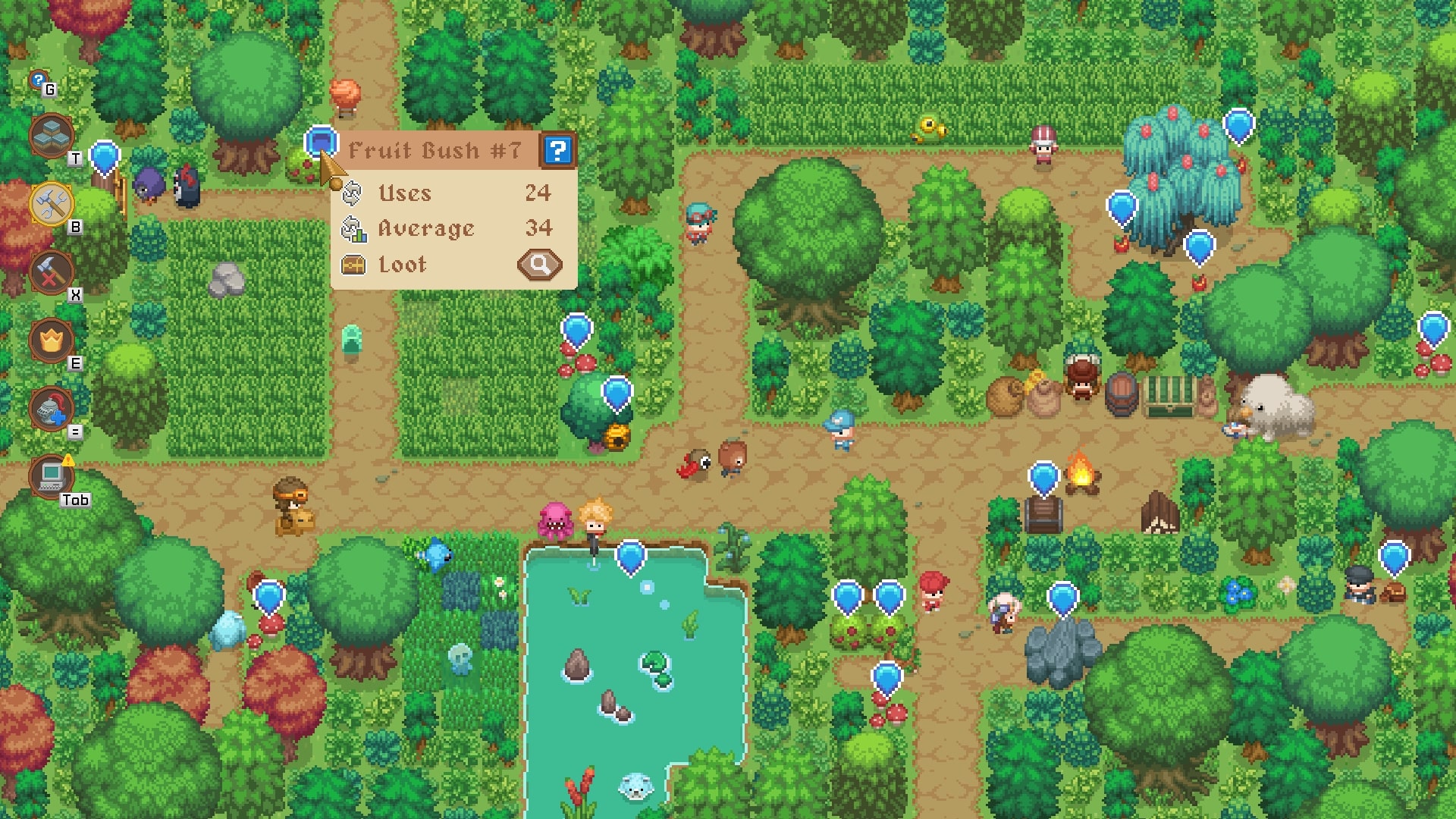
My boss reminded me that he'd dumped a lot of cash into my studio and he's expecting a milestone payment in the near future: a return on his investment. His name, by the way, is Lord Richard, his avatar wears a crown, and in our brief conversation he casually dropped the fact that he's been to outer space—so I think I have some idea who this investor might be based on. He also suggested I play the game I just made, so I did. I ran through the town I built and into the dungeon I designed, battling the rats I spawned and collecting the gold and weapons I'd hidden in treasure chests. When I got to fight the boss—not my studio's boss, the dungeon's boss—that's where my demo ended.
But I did get to see more of Let's Build a Dungeon in a meeting with game director and CEO of Springloaded James Barnard, and what I saw extends far, far beyond the short demo I played. At one point Barnard was showing me the simulated digital games marketplace my MMO I will appear in, which is based pretty faithfully on Steam.
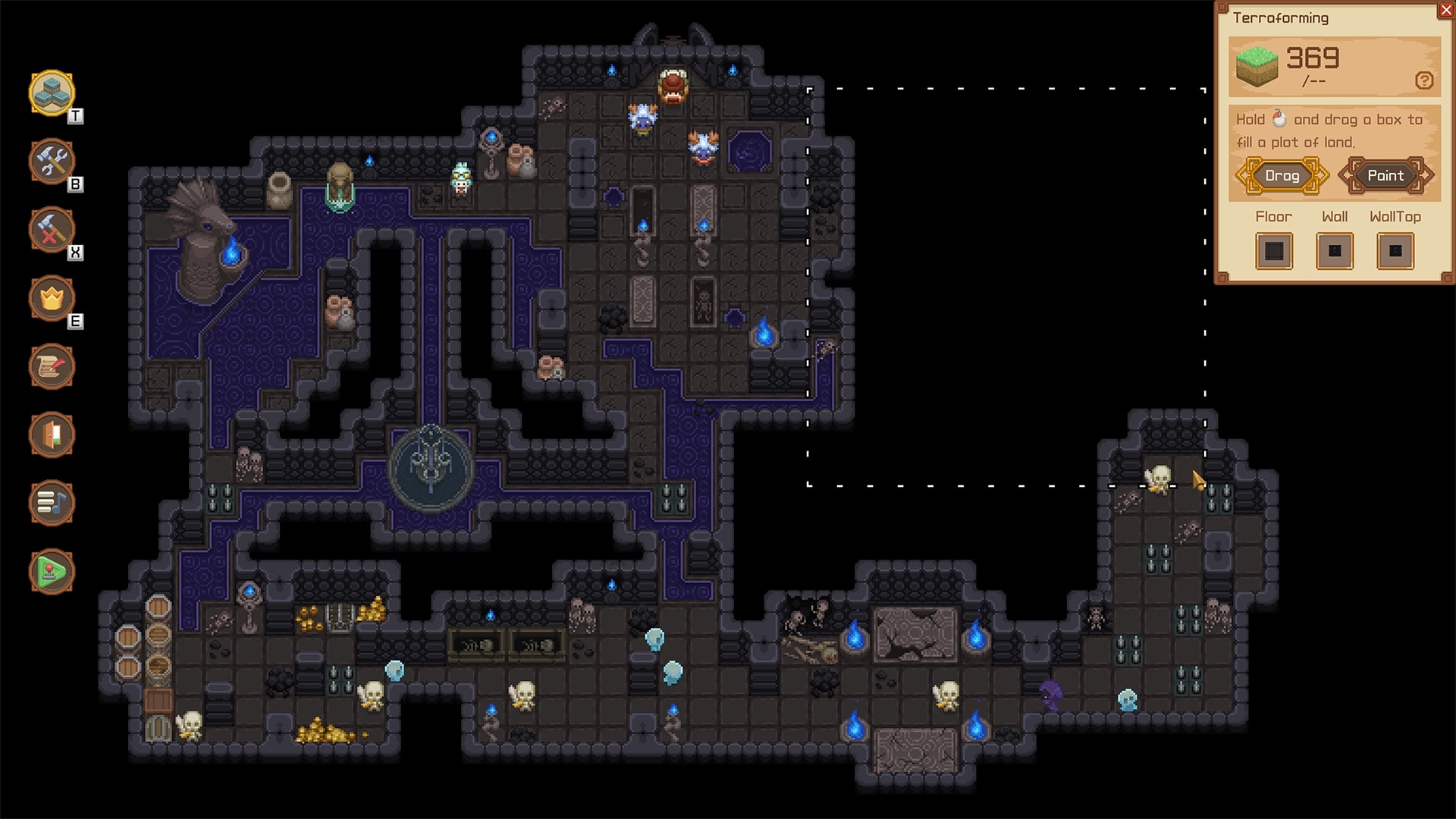
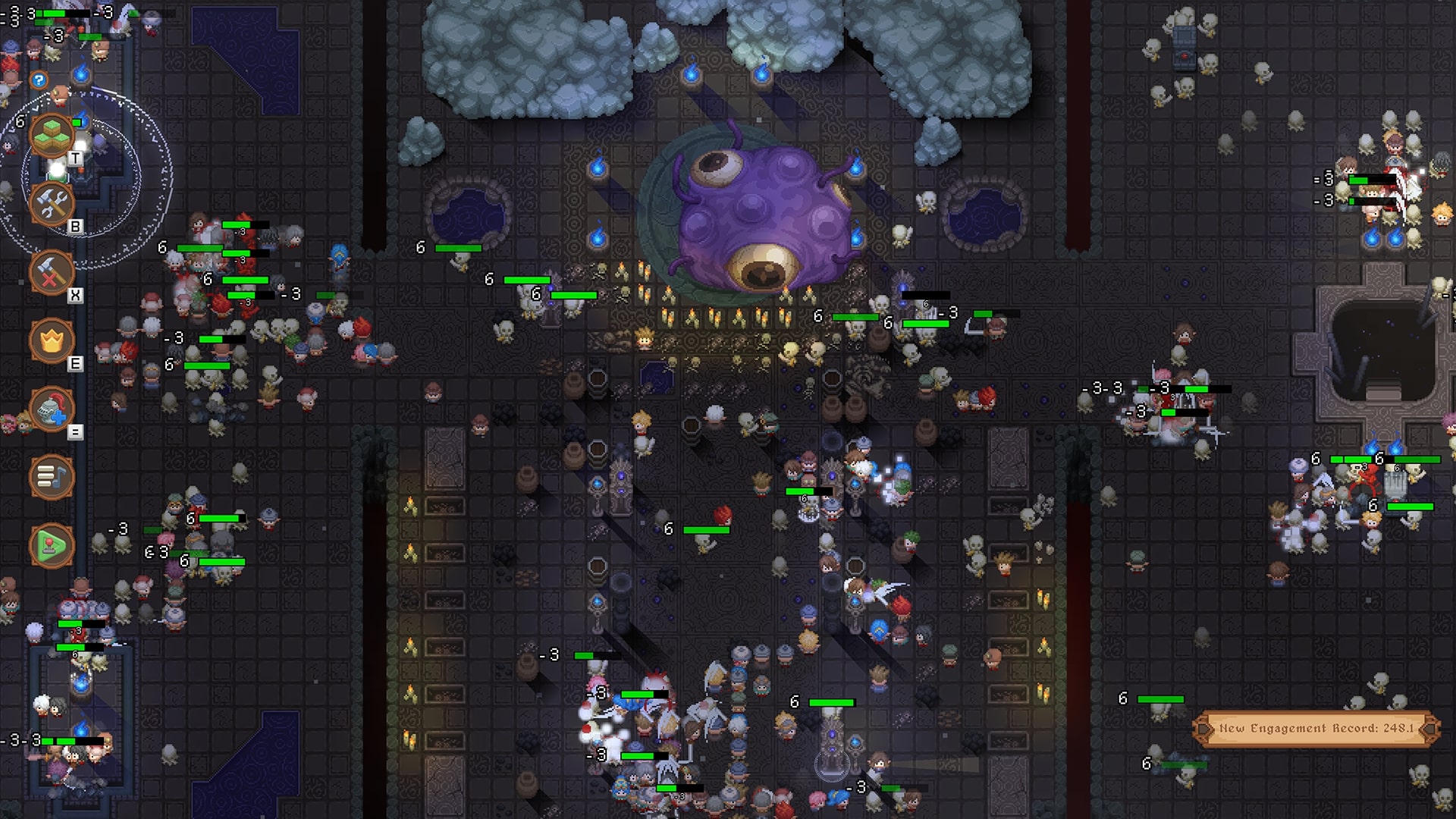
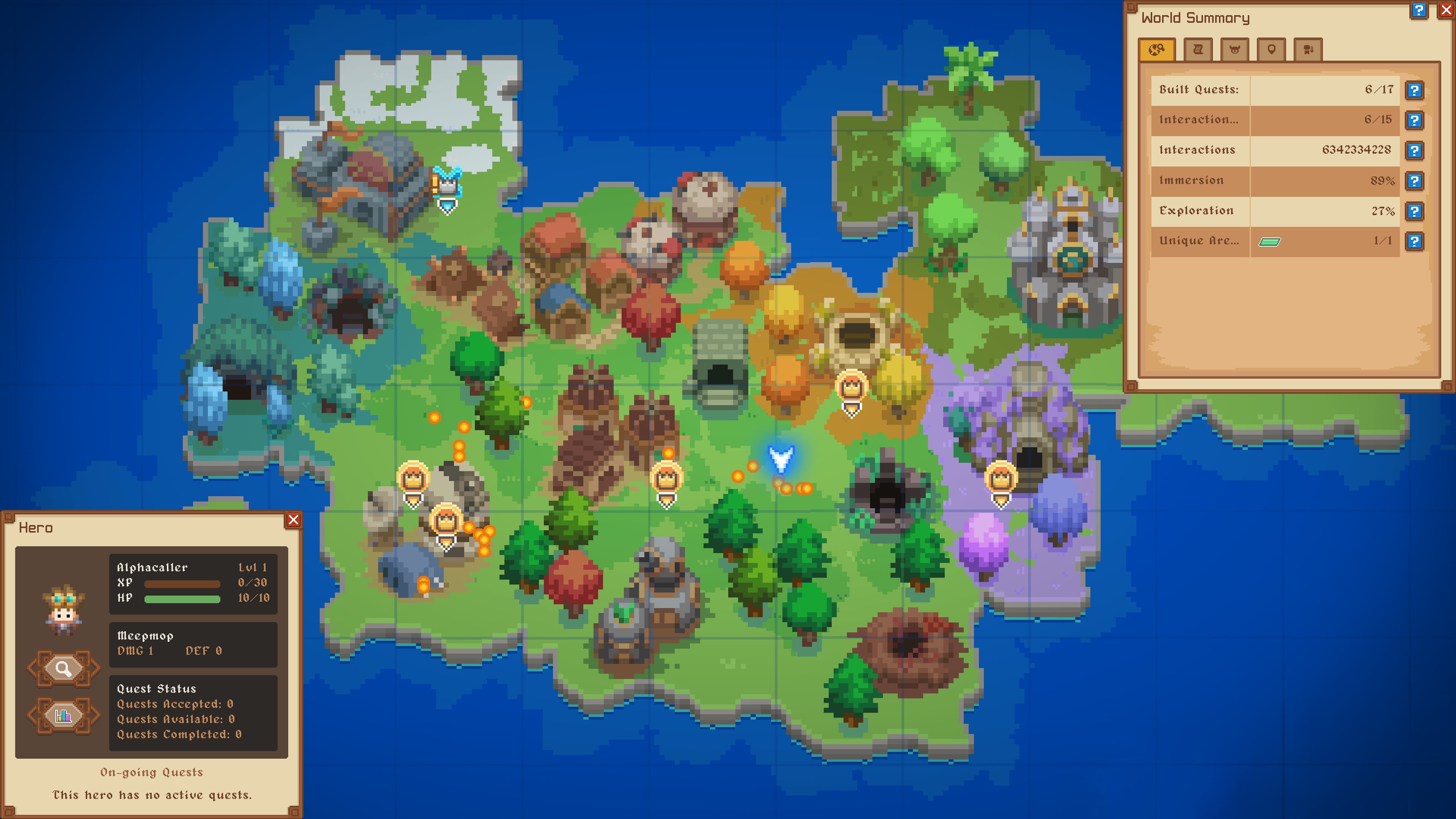
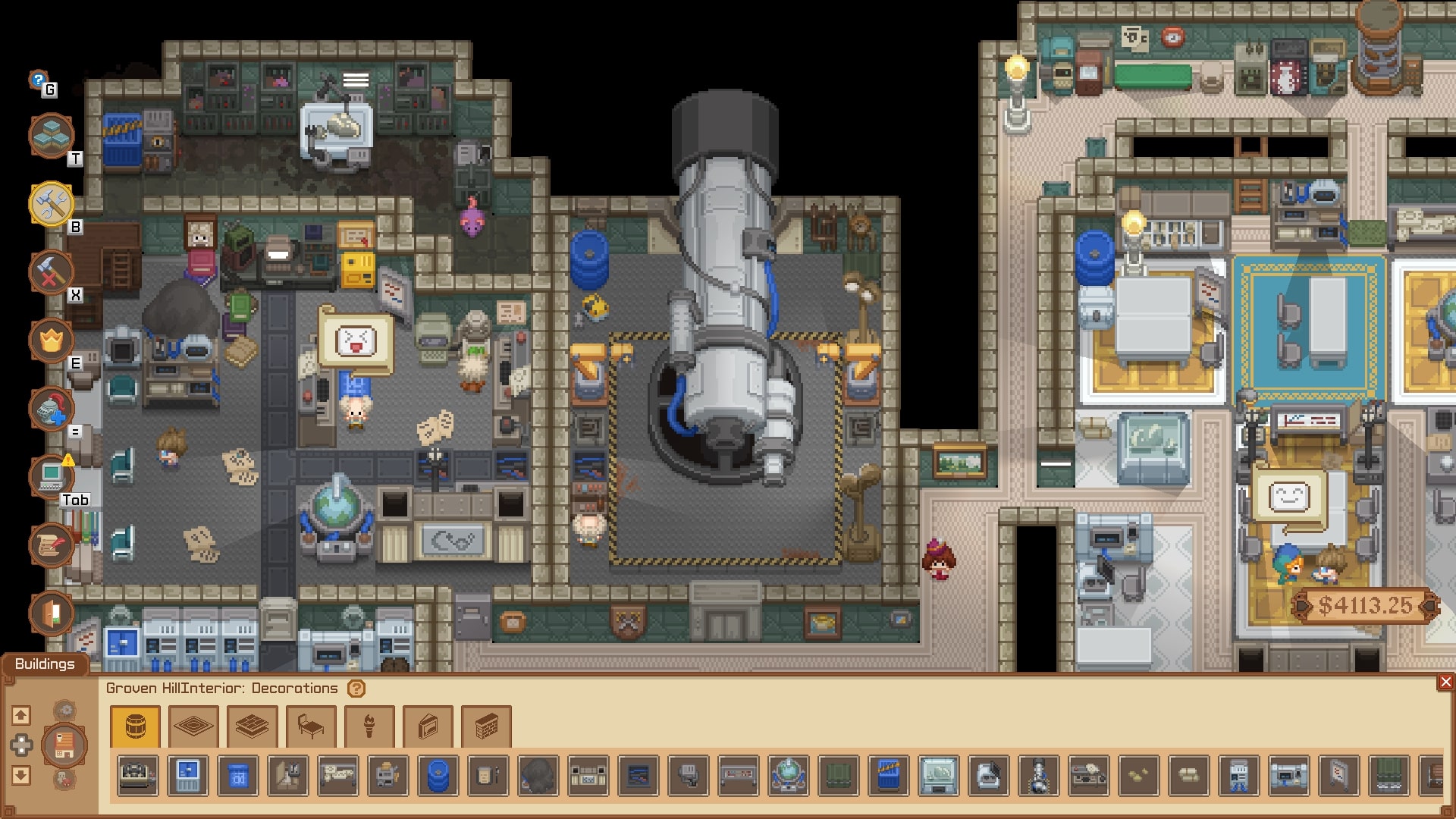
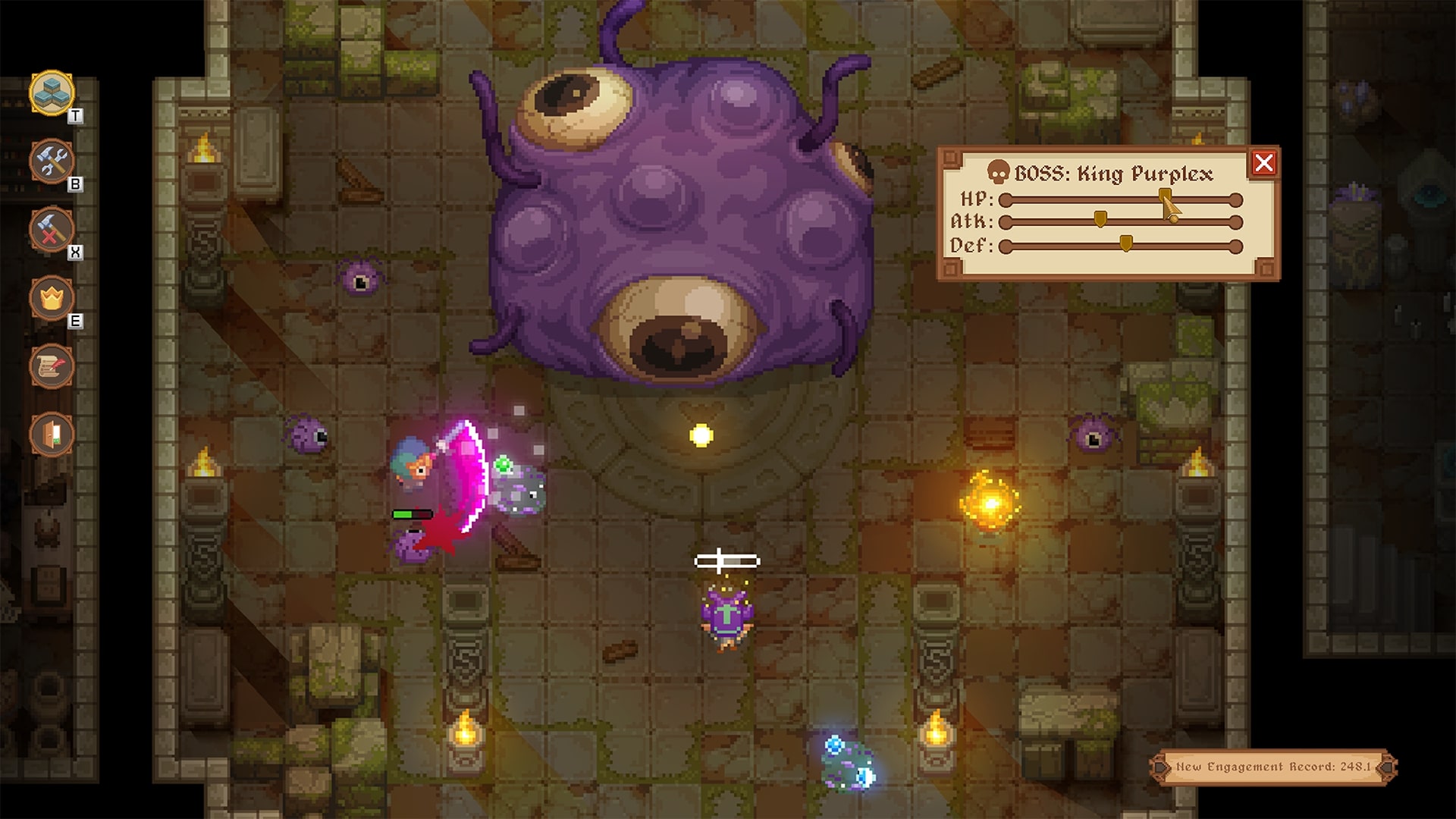
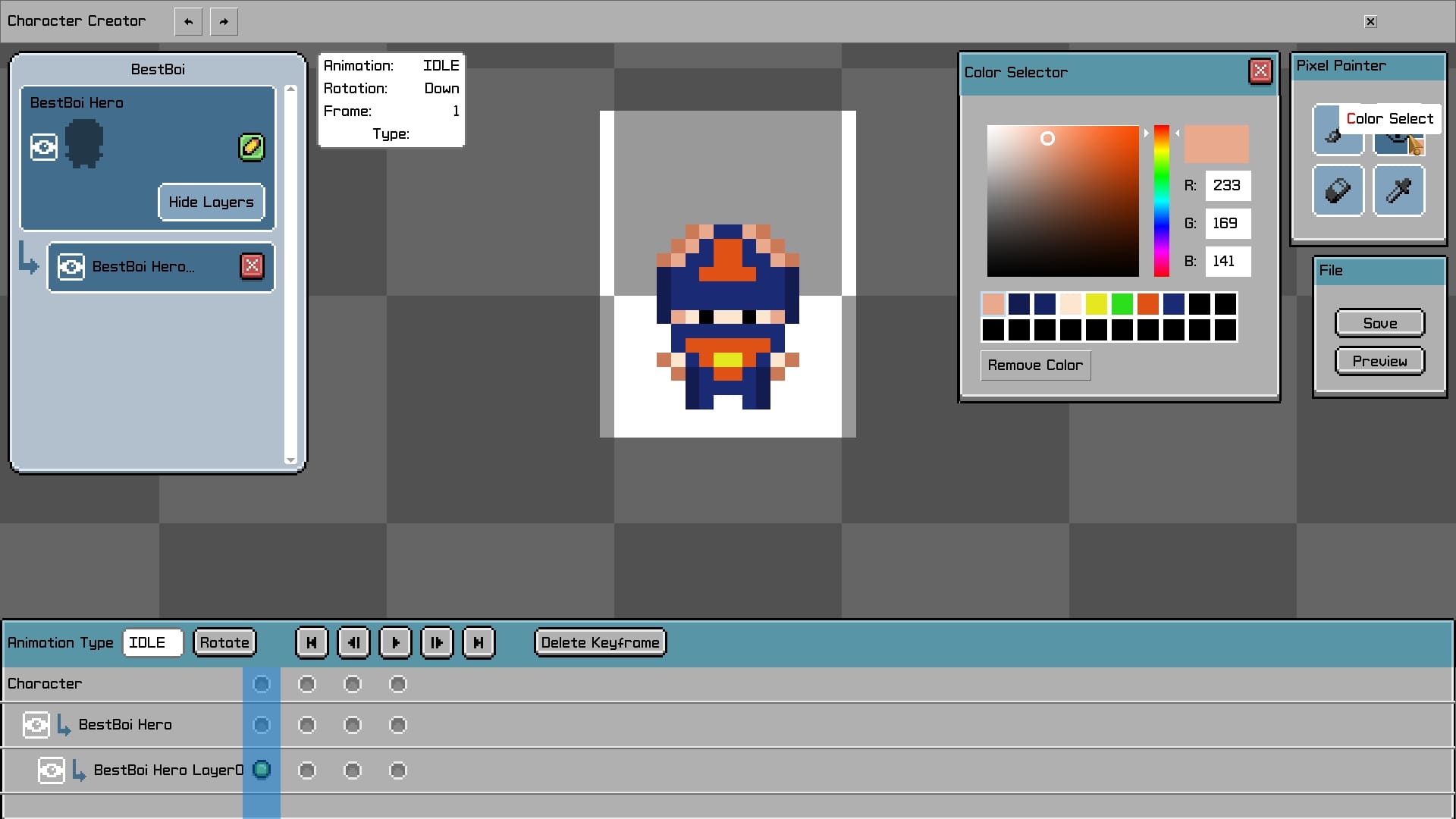
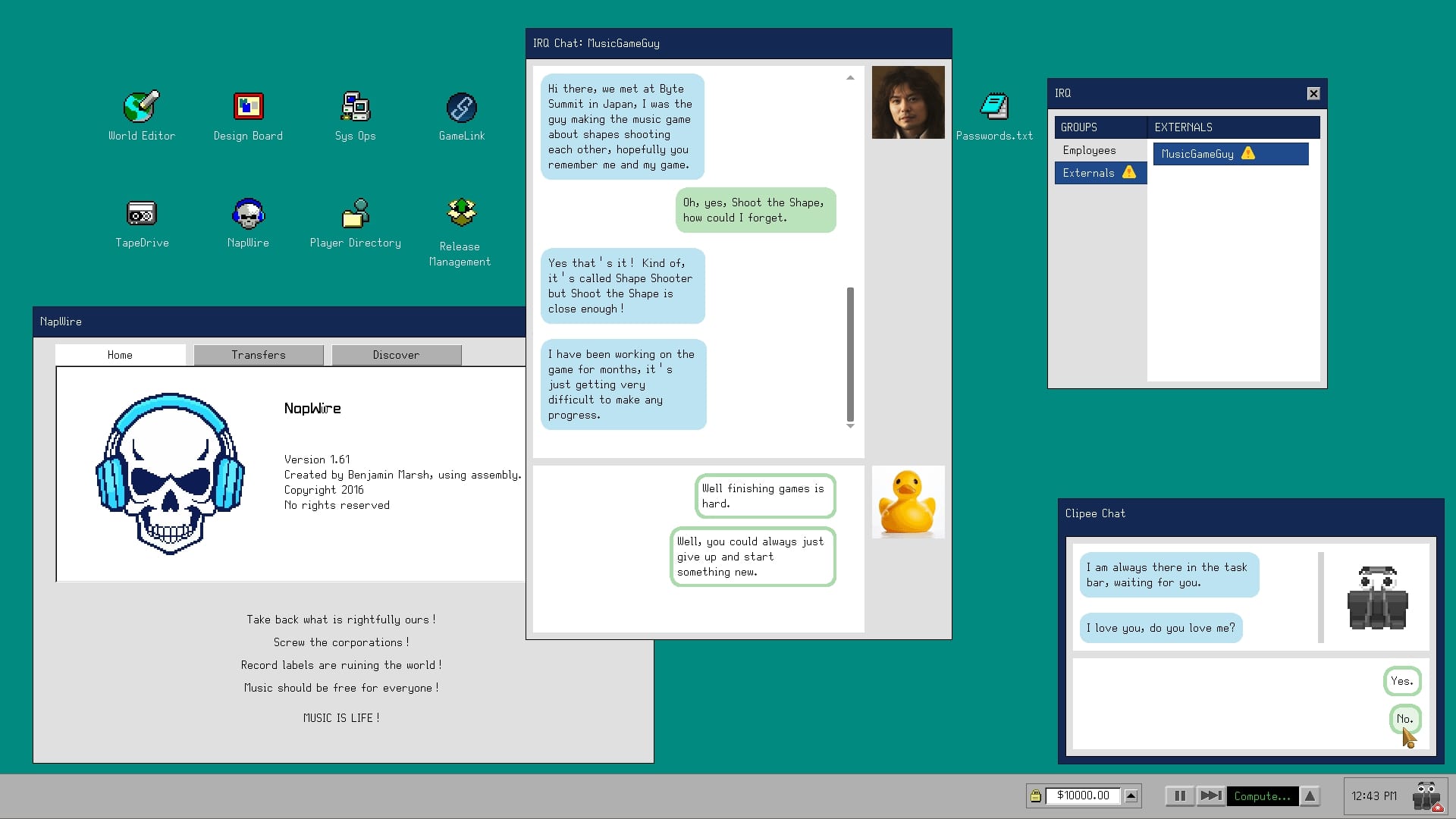
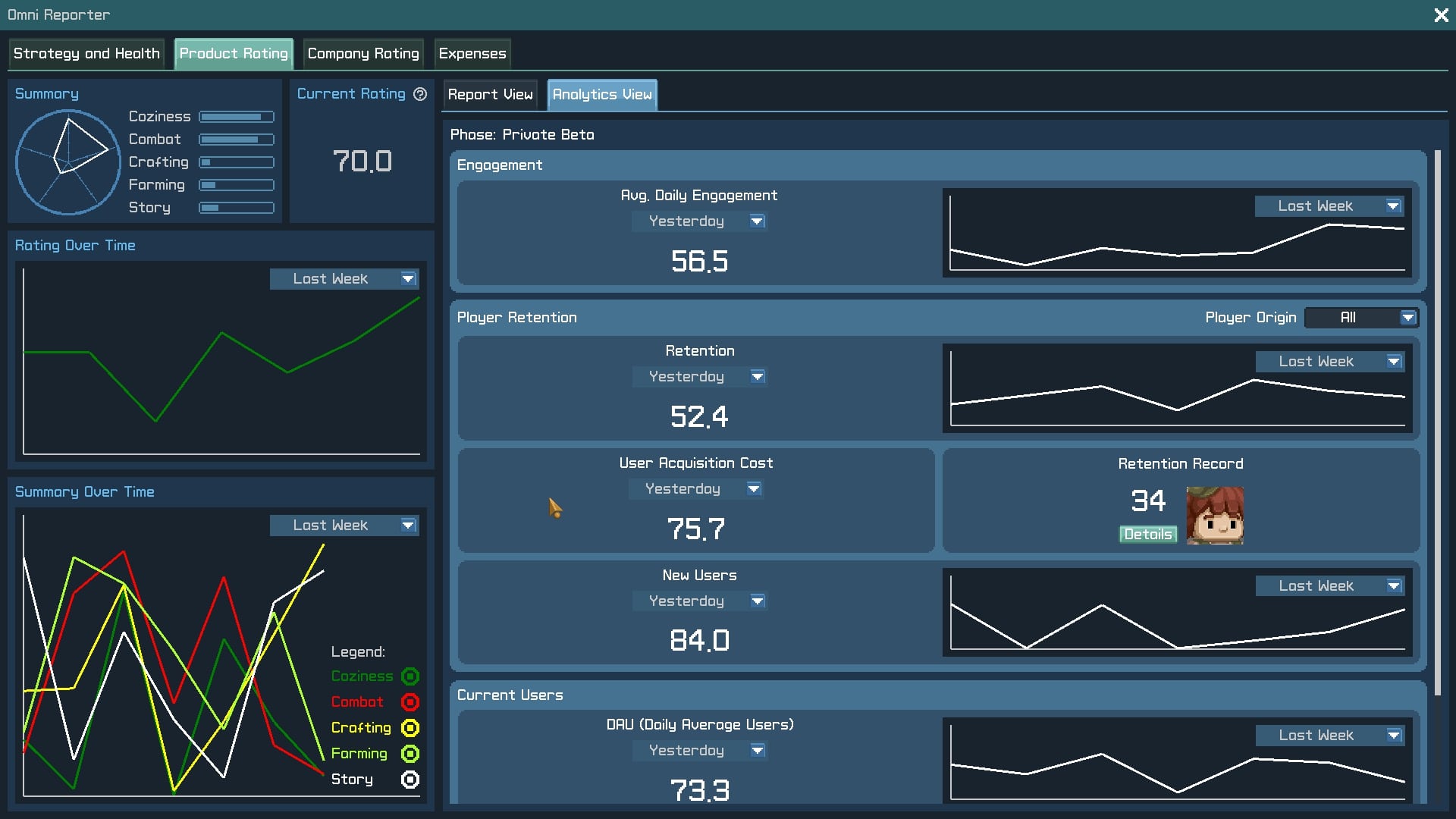
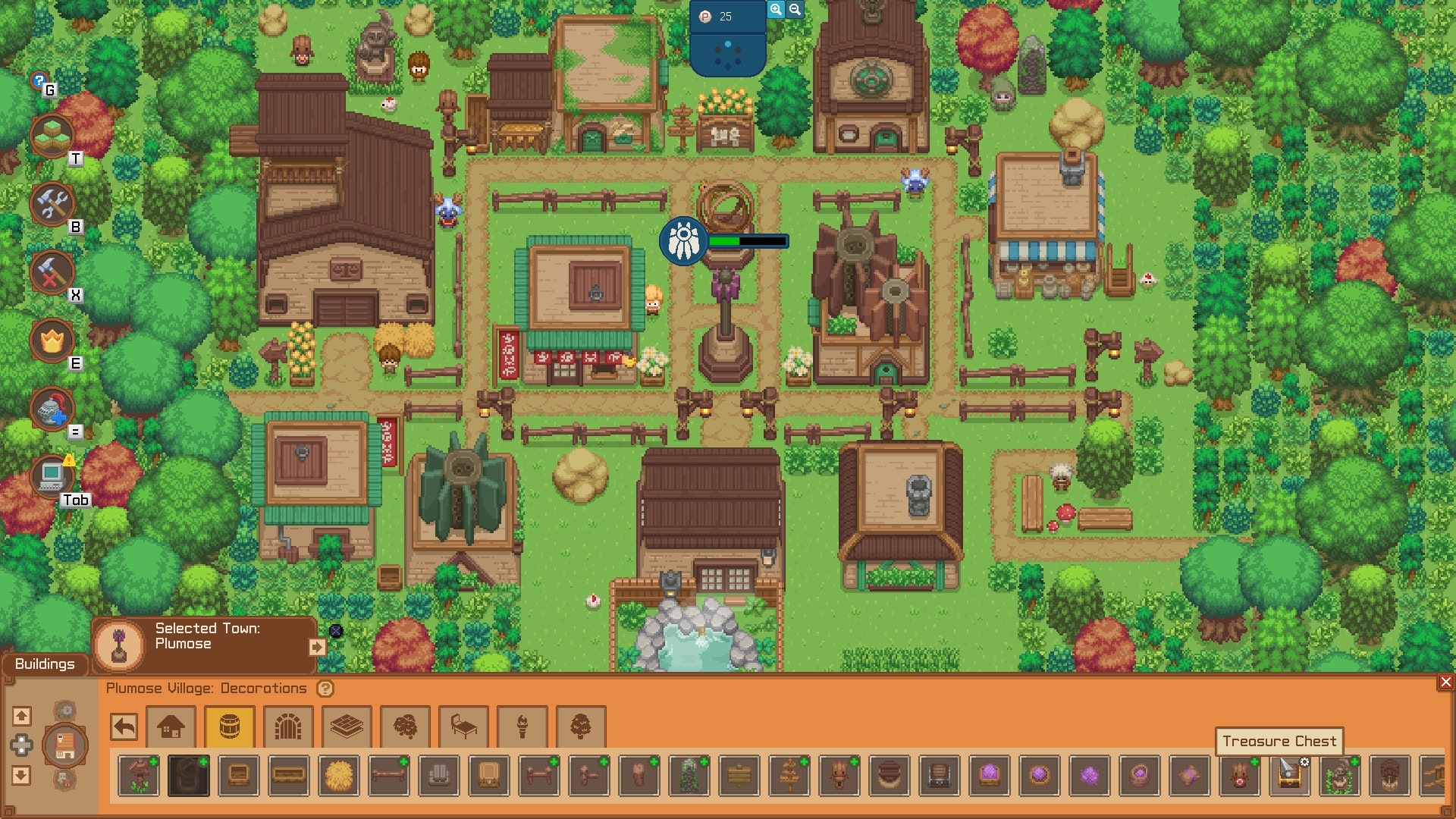
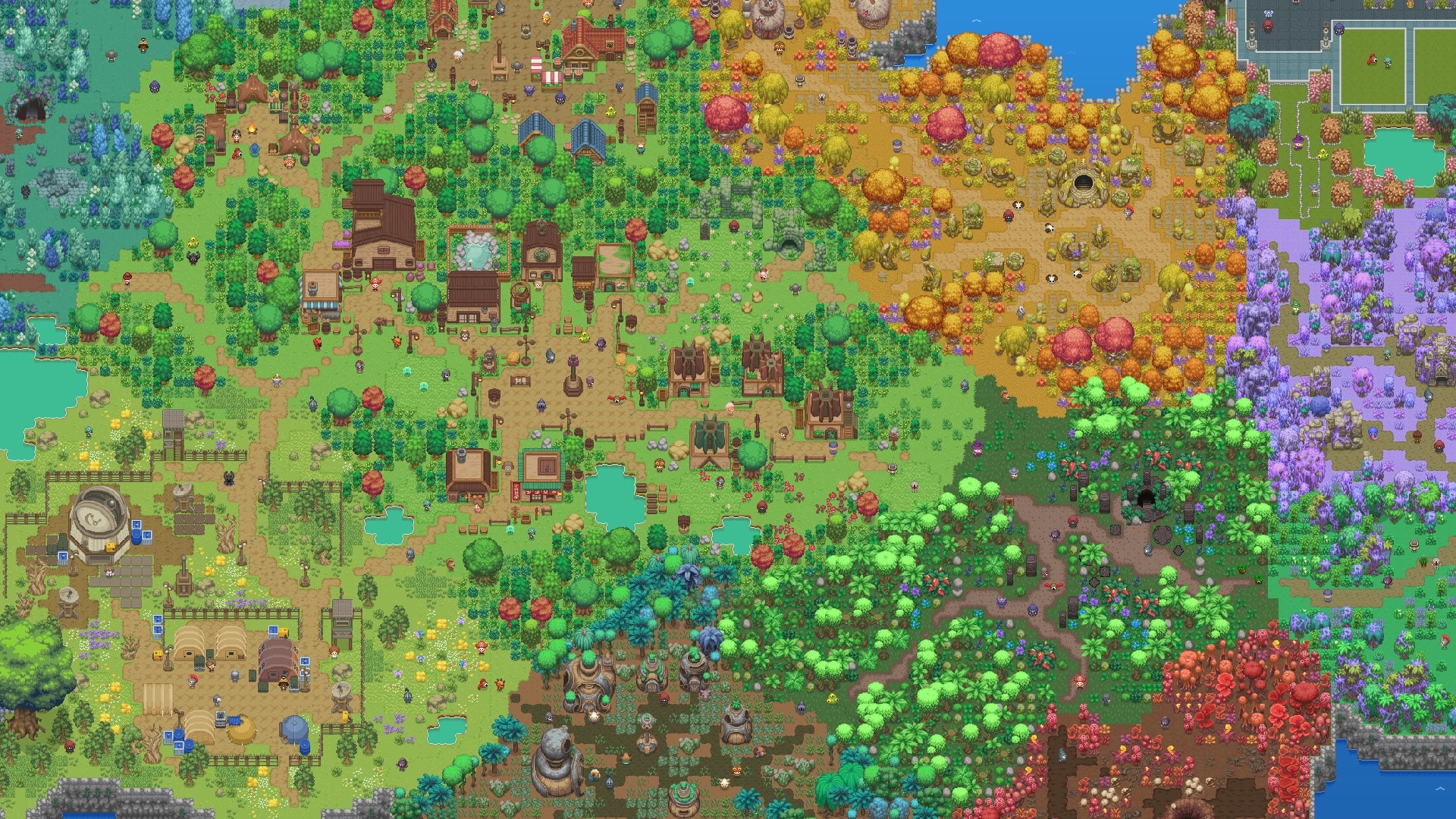
It's not just my studio and game that's simulated, but all my customers, too. We could look at an individual players' data: what country they live in, how long they've been playing, and what quests they've completed. I could see their address, their name, and even their itty bitty simulated credit card number they paid for the game with. In Let's Build a Dungeon you can pay for a system to encrypt those credit card numbers just in case of a data breach... or to save money you can choose not to and hope for the best. Point is, you can get hacked and your users' data can be stolen. Let's Build a Dungeon goes pretty deep.
If you played Springloaded's last sim, Let's Build a Zoo, you're aware there are several ways to be an evil zoo manager, like turning your spare zoo animals into food and products for extra profit. The potential for evil isn't quite as graphic in Let's Build a Dungeon, but it's definitely there, and in ways that mirror the real games industry pretty closely. "There are many meaningful (and sometimes ethical...) choices to make," says Springloaded. "Players can choose to force extended working hours to meet deadlines, or ignore investor pressure to protect the development team."
Want to make a game in this game about making a game? Yeah, me too. Big time. There's no release date yet for Let's Build a Dungeon, but interested players can sign up for a beta on the official site, and here's its page on Steam.

Chris started playing PC games in the 1980s, started writing about them in the early 2000s, and (finally) started getting paid to write about them in the late 2000s. Following a few years as a regular freelancer, PC Gamer hired him in 2014, probably so he'd stop emailing them asking for more work. Chris has a love-hate relationship with survival games and an unhealthy fascination with the inner lives of NPCs. He's also a fan of offbeat simulation games, mods, and ignoring storylines in RPGs so he can make up his own.


